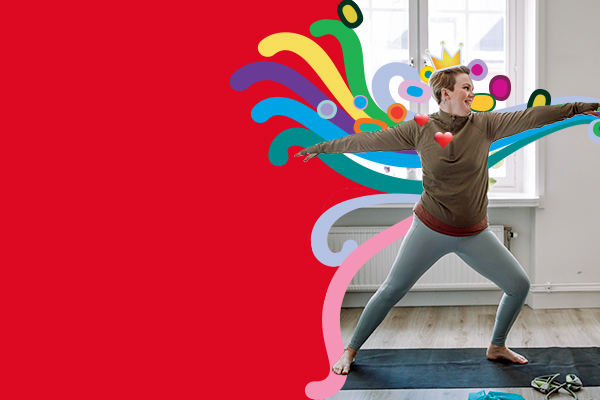-
Have you come across these barriers to exercising?
Not enough time in the day? Too many back-to-back meetings? Competing priorities and deadlines?
Chances are your employees have encountered these hurdles too.
The challenges are further magnified for employees in unique roles. These could include shift workers, retail staff, call centre operators and individuals with limited mobility.
Instead of an all-nothing approach to exercise, micro workouts are emerging as a practical solution.
New research has found that integrating short bursts of movement throughout the day can improve wellbeing and enhance productivity.
Working it out
In 2020, the World Health Organization (WHO) updated its exercise guidelines to recognise that exercise can be broken down into smaller daily increments or micro-movements.
Rather than focusing solely on prolonged periods of exercise, the recommendation acknowledges that physical activity of any duration can be highly beneficial and count toward weekly activity guidelines.
That means if you’ve missed the lunchtime yoga class, your activity throughout the day is still beneficial.
Seventy-five per cent of Australian adults don’t meet the recommended daily levels of 150 minutes of moderate to vigorous activity per week. Micro-movements offer an effective strategy to increase movement and potentially reduce the risk of chronic diseases such as type II diabetes, depression, anxiety and heart disease.
One step at a time
A McMasters University and UBC Okanagan 2019 study supports the effectiveness of micro-movements, or exercising snacking. An experimental test group who previously led a sedentary lifestyle were instructed to climb three flights of stairs three times a day over six weeks.
The results demonstrated that a few minutes of stair climbing, at short intervals throughout the day, may improve functional performance and is well tolerated by sedentary individuals.
A cardio, cardiac and cognition combo
We commonly associate exercise with being great for our bodies. However, physical activity may also be a ”modifiable factor for prevention, to improve cognitive abilities and enhance mood.” A research paper explored the positive benefits, of physical exercise, and found exercise may improve executive function, enhance mood and decrease stress levels.
The positive effects of exercising may last for two to three hours after exercising. Employees can use this to their advantage by exercising for a minute or two before an important task to potentially improve clarity and performance.
Move this Way
Lizzie Williamson is the founder and author of Two Minute Moves, a TEDx speaker and a certified personal trainer. Lizzie has partnered with the Medibank corporate wellbeing program to create customised wellbeing programs. These include a curated video library of energising two-minute moves for employees, workshops and keynotes. They are designed to help people move more at home, work, or onsite.
Lizzie acknowledges that "finding the time and motivation to be active can be challenging, especially when feeling exhausted or stuck at your desk. It's easy to fall into a rut of doing nothing." Lizzie shared that by "incorporating movement into your workday, you can help avoid the negative effects of prolonged sitting: discomfort, pain, costly injuries, absenteeism and compensation claims." Her science-based solution includes starting with something as small as moving for two minutes to promote physical and mental health for employees.
Movement matters
Encouraging a mindset shift in workplace physical health programs can unlock new movement opportunities for all employees, regardless of location, work environment or mobility. This could include:
- Reduce meeting times to 25 or 45 minutes to allow time for stretching and movement breaks
- Schedule a walking meeting to combine movement and collaboration
- Run workplace wellbeing workshops on the importance of movement for ergonomic support, mental wellbeing and physical health
- Start peer-led exercise groups, including run clubs, walking groups or social sports
- Begin or end meetings with a movement session
If you would like to learn more about workplace wellbeing programs for your organisation or the Lizzie Williamsons two-minute move programs, contact corporate.medibank@medibank.com.au
Always consult with a medical professional or GP before undertaking a new exercise routine.
Learn how small bursts of movement can have a positive impact on employee wellbeing

